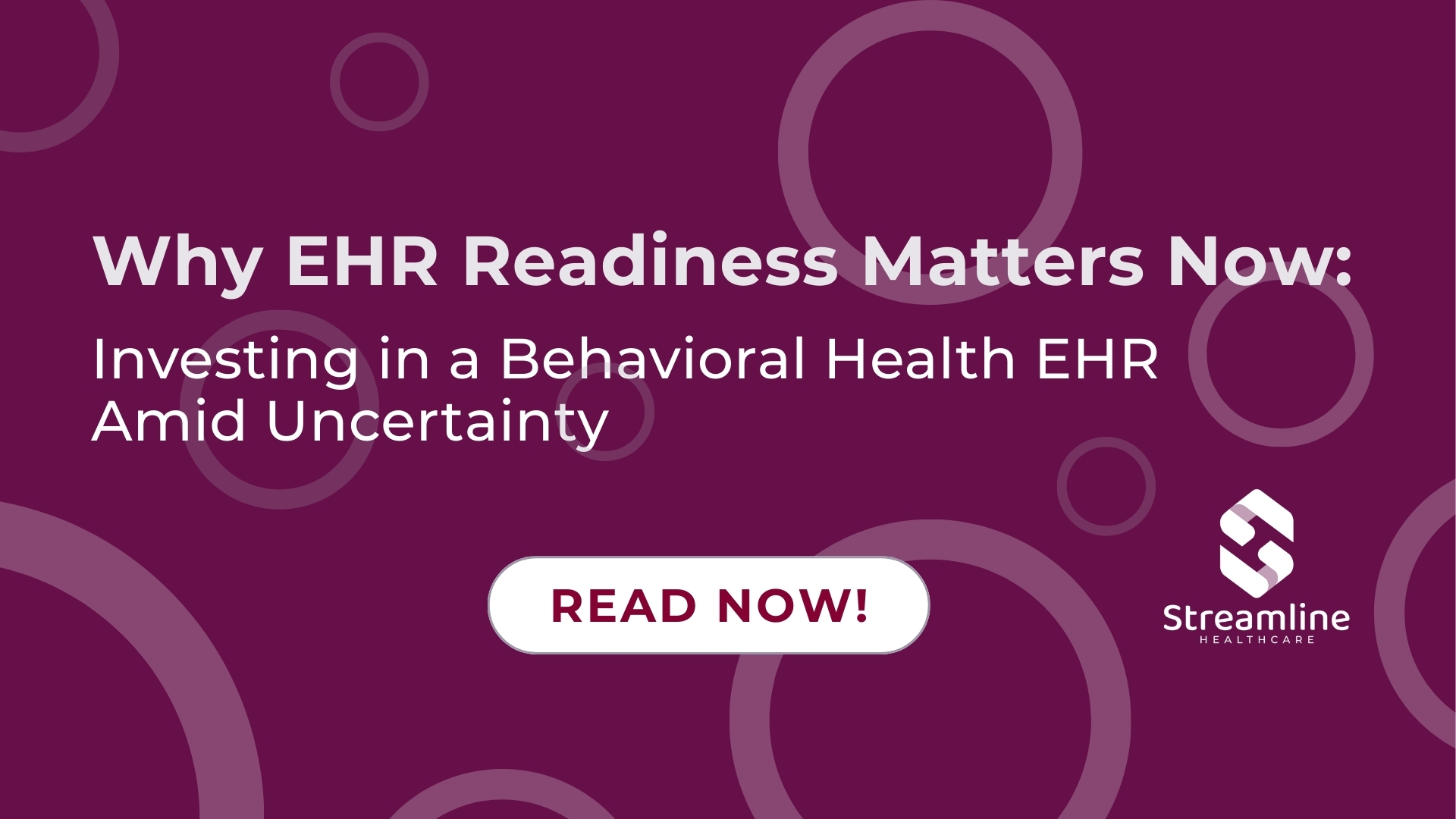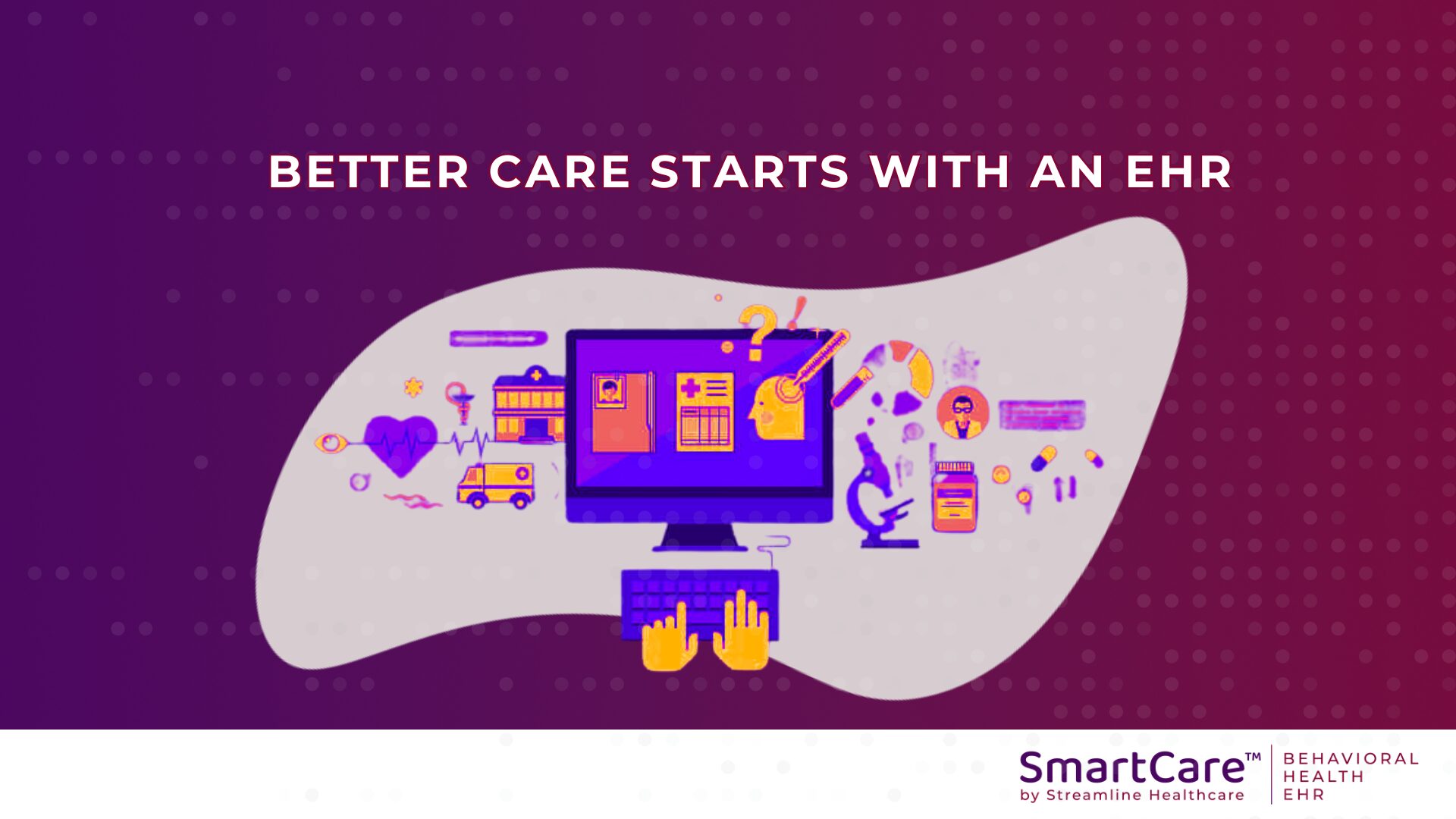Many behavioral health organizations are required to deliver data to outside funders, to track performance and client health. This is part of a health model called “value-based healthcare.” But if organizations are only collecting this information to satisfy funders, it can seem like a tedious and overwhelming process. Understanding the true significance of data in a value-based healthcare market can help healthcare providers actively utilize this information to improve the quality of care.
What is Value-Based Healthcare?
Value-based healthcare is a delivery model in which providers, including hospitals and physicians, are paid based on their client’s health outcomes. Under these types of agreements, providers are rewarded for helping individuals improve their overall health, reduce the effects and incidence of chronic disease, and live healthier lives.
This is different than a fee-for-service or capitated approach, in which providers are paid based on the number of healthcare services they deliver. In a value-based system, the value comes from measuring actual outcomes against the cost of delivering those outcomes. This means that data plays a large part in proving whether or not client health is actually improving, and evaluating if these clients are living healthier lives.
The Benefits of a Value-Based Model
In a value-based model, society as a whole sees the benefits, including patients, providers, payers, and suppliers. A value-based model can lower costs for clients, increase client satisfaction, offer reduced risks, align price with outcomes, and result in reduced healthcare spending and better overall health, which is the goal is a value-based market.
Value-based care models focus on helping patients recover from illnesses and injuries more quickly and avoid chronic disease in the first place. Clients who have fewer instances of behavioral health issues are more likely to recover quickly and treat physical ailments, like diabetes, whereas a patient suffering from depression may not seek out the treatment they need. When physical and mental health is aligned, an individual can recover from illnesses and injuries faster and, as a result, face fewer doctor’s visits, medical tests, and procedures. They also spend less money on prescription medication as both short-term and long-term health improve. When long-term health is improved, less money is spent helping people manage chronic diseases, including costly hospitalizations and medical emergencies. While we currently face healthcare expenditures of nearly 18% of Gross Domestic Product (GDP), value-based care can help significantly reduce the overall costs of healthcare.
These health analytics can be particularly useful for behavioral health organizations that are multi-faceted, and which deliver a variety of services that help clients with both short-term problems and chronic disorders. As a client’s mental health can impact their physical health and vice versa, the full spectrum of health must be considered during client treatment. The data collected as part of a value-based healthcare model can offer behavioral health providers a holistic look at a client’s health, so that they may provide appropriate care.
Data’s Role in a Value-Based Market
To make sure a value-based model is actually delivering value, there needs to be proof that it is working. Many healthcare facilities rely on funding to remain in operation, as well as to pay for the services they offer. This funding often comes from public sources, who have a vested interest in confirming that their money is being put to good use. To monitor the levels of success, these organizations turn to collected data.
According to an educational report from HFM Magazine, “With the ever-changing complexities in the healthcare industry, data analytics can ensure hospitals and health systems realize every dollar, as quickly as possible, while sustaining higher levels of client satisfaction and employee engagement. In all, these benefits help healthcare organizations not only endure but also thrive in today’s competitive and challenging marketplace.’’
Data can be used to measure the success of therapeutic interventions, determine projected costs, monitor trends, better predict population cost, and more.
As an example, we can look at Body Mass Index (BMI), or the measure of fat in adults. This measurement is a key indicator of overall health and can be used to provide healthy living education to clients and track improvements in their health. This number can impact not only physical health but mental health as well; as BMI decreases as a result of healthy lifestyle choices, clinics can begin to treat correlating mental health issues.
Organizations can also use data to confirm clients are receiving the right services at the correct frequency and duration. By vigilantly collecting required data, you can catch bad or incorrect information at the point of entry, saving time and money.
When behavioral and primary care organizations utilize data that is being collected, they can better serve their clients, optimize their resources, save money, and grow. Placing value on data collection and utilization can greatly increase the success of a value-based market.




